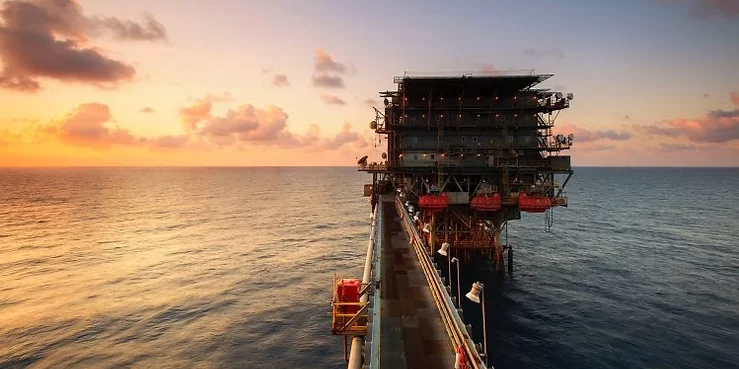Access to charging stations is not the only factor limiting the wide-spread adoption of electric vehicles in the United States.
Experts are concerned that, in the coming years, EV sales could be further dampened by the diminishing supplies of a material most Americans have thought little about since high school chemistry: cobalt.
A heavy metal found primarily in central Africa, cobalt is an essential component of the batteries used to power electric vehicles.
And for EV manufacturers and consumers focused on reducing their carbon footprint, it is becoming increasingly difficult to procure.
The United States is seeking to ameliorate this challenge and bolster the world’s supply of cobalt and other critical minerals by investing heavily in a new infrastructure project in Africa.
In November, the United States signed a multilateral memorandum of understanding to explore building railroads that would connect mineral-rich zones in Africa’s interior with easily accessible ports along its Atlantic coast.
Under this initiative, known as the Lobito Corridor Project, partners including the United States, European Union, and African Development Bank would fund the construction of new railroads from Zambia and the Democratic Republic of the Congo—where much of the world’s cobalt and copper are mined—to Angola, home to a deep-water Atlantic port at Lobito.
The Lobito Corridor Project would facilitate regional trade and development and reduce the environmental impacts of resource extraction, according to a recent press release issued by the White House.
Once construction begins, the project is expected to be completed within five years, a significant show of economic investment in central Africa.
Angola, which will export copper and cobalt from Lobito to markets in the United States and Europe, has sought to distinguish itself as a regional leader in sustainability even before the signing of the Lobito Corridor MOU.
Angola’s state-owned oil company, Sonangol, has made great strides to attempt to decarbonize the country’s oil industry, which is the country’s principal driver of economic production.
Sonangol is gaining a global reputation for its work to bring sustainability to the industry, which has long been chastised for its significant emissions of greenhouse gasses.
Sonangol is poised to open next year a new facility in Barro do Dande that will produce green ammonia and hydrogen, two sources of clean energy, that will be exported directly to markets in Germany and central Europe, creating a new locus of sustainable power in a continent roiled by energy shortages following Russia’s invasion of Ukraine.
At the same time, Sonangol has invested in a new refinery in Lobito that will enhance Angola’s energy self-sufficiency, reducing its need to import power.
Sonangol has also taken strides to limit methane flaring, a controversial practice at oil facilities around the world.
Once common on offshore platforms from the Kwanza Basin to the Gulf of Mexico, flaring involves burning gaseous byproducts like methane emitted during oil drilling, which emits greenhouse gasses and other pollutants into the atmosphere.
Sonangol announced that its new offshore facilities, built in conjunction with France’s TotalEnergies, will use new technology that eliminates the need for methane flaring.
Sonangol was one of several state-owned oil companies, including Malaysia’s Petronas and Brazil’s PetroBras, to join governments and private corporations in signing a nonbinding resolution at the COP28 Conference in Dubai to decarbonize operations and end flaring by 2050.
The Lobito Corridor Project could help solidify these efforts to make resource extraction a more efficient, environmentally sustainable practice across the region.
It also could represent more than merely an attempt to support the still nascent EV market and enhance local economies.
With Africa predicted to become one of the world’s most populous regions by the end of the coming century, the Lobito Corridor Project could equally be seen as an attempt to countervail and perhaps dislodge the leading great power on the continent: China.
Under President Xi Jinping’s signature Belt and Road Initiative Policy, China has been responsible many of Africa’s largest infrastructure investments over the last two decades.
From powerplants in Zimbabwe to railways in Kenya, Beijing’s fingerprints are writ large across Africa’s most innovative projects.
While perhaps a play in the game of great power politics, experts say the Lobito Corridor Project could give the United States and European Union a greater foothold in central Africa, improving lives across the region and making EVs more accessible in the process.
![]()




